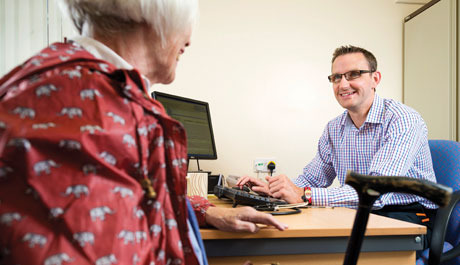Just over one-third of elderly patients who took eight or more treatments a day have stopped medication, after GPs and geriatricians teamed up to assess them.
Funded by NHS Stoke-on-Trent CCG, the study involved seven practices and resulted in 91% of the participants changing their medication regimes. Stopping medication or reducing the dosage made up over half of all alterations.
GPC clinical and prescribing policy lead Dr Andrew Green said that this is exactly the sort of initiative that CCGs should be funding, and that it would likely provide significant longer term savings.
Prior to taking part in the study, patients were sent a written invitation outlining the assessment purpose and format. Practice staff also prepared information packs incorporating medical history, recent consultations, medications, laboratory tests and social circumstances.
Each of the 186 patients, aged between 65 and 99 years, was allocated a one hour assessment, which involved a full history, clinical examination, balance and mobility assessment, mental function and details on their home environment and support arrangements.
Following this a total of 687 recommended changes were made, equating to an average of four changes per patient.
This was broken down into 34% stopping medication, 24% reducing the dosage, 18% starting a new medication, 13% changing to an alternative and 8% increasing their dose.
The paper, published in the BMJ, highlighted that six months following the changes, nearly three quarters of the patients were adhering to the recommendations. This number decreased to 65% at 12 months.
GPC clinical and prescribing policy lead Dr Andrew Green said: ‘This is exactly the sort of initiative that CCGs should be funding.
‘Targeted involvement of those with specialist skills from an elderly medicine perspective at those patients most likely to be at risk from their medications is to everyone’s advantage.
‘There are likely to be significant longer term savings for CCGs in properly funding this work, which has to include the primary care aspects as well as the specialist’s input.’
The study noted that all the GPs involved in this project responded positively and said that they ‘felt that their patients benefited clinically and that the presence of geriatricians in primary care was constructive and worthwhile’.
Last month new measures to crackdown on GP medication errors were announced by health secretary Jeremy Hunt, after Department of Health and Social Care-commissioned research found that nearly three-quarters of the 66m potentially clinical significant medication errors took place in primary care.
Pulse October survey
Take our July 2025 survey to potentially win £1.000 worth of tokens














